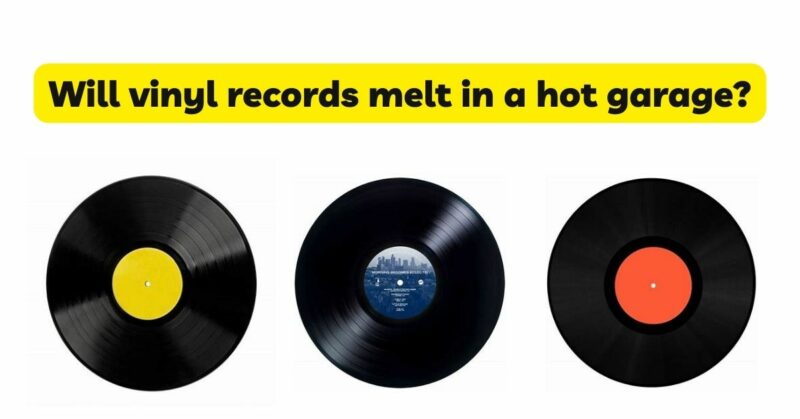Vinyl records have made a remarkable comeback in recent years, captivating music enthusiasts with their warm sound and nostalgic charm. As vinyl collections grow, concerns regarding proper storage and preservation arise. One particular question that often arises is whether vinyl records can withstand the intense heat of a hot garage. In this article, we will delve into the potential risks that high temperatures pose to vinyl records and explore effective strategies for protecting these cherished musical artifacts.
Understanding Vinyl Records:
Before diving into the impact of heat on vinyl records, let’s first understand their composition. Vinyl records are made of polyvinyl chloride (PVC), a type of plastic known for its durability. The PVC is mixed with various additives, such as stabilizers and lubricants, to enhance its properties and make it suitable for recording and playing music. The vinyl disc is then coated with a thin layer of protective material to prevent scratches and damage.
Effects of Heat on Vinyl Records:
Vinyl records are generally designed to withstand normal temperature variations, but exposure to extreme heat can lead to irreversible damage. When exposed to high temperatures, vinyl records can warp, melt, or even become unplayable. The primary concern is the softening point of the PVC material, which is typically around 160-170 degrees Fahrenheit (70-75 degrees Celsius). Prolonged exposure to temperatures above this threshold can result in the deformation of the record, rendering it unusable.
Warpage:
One of the most common consequences of heat exposure is record warping. Vinyl records are flat and have a uniform shape when properly stored. However, excessive heat can cause the record to warp, resulting in uneven surfaces that prevent proper needle tracking and playback. Warped records produce distorted sound quality and may even skip or repeat sections of the music.
Melting:
Vinyl records can also melt under extreme heat conditions. The PVC material begins to soften as the temperature rises, eventually reaching a point where it can no longer retain its original form. Melted records lose their grooves and become deformed, rendering them unplayable. The damage caused by melting is irreversible, and the music imprinted on the record is permanently lost.
Deformation of Protective Coating:
In addition to the vinyl itself, high temperatures can also affect the protective coating applied to the record. The coating may degrade, become sticky, or develop bubbles when exposed to intense heat. These alterations can cause interference with the stylus during playback, resulting in poor sound quality and potential damage to both the record and the turntable.
Preventing Heat-Related Damage:
To ensure the longevity and quality of your vinyl record collection, it is crucial to protect them from excessive heat. Here are some effective strategies to consider:
- Temperature Control: The ideal storage temperature for vinyl records ranges from 60 to 70 degrees Fahrenheit (15-21 degrees Celsius). Avoid storing records in environments prone to extreme heat, such as garages or attics, where temperatures can rise significantly during summer months.
- Insulation: If your only option is storing records in a garage, consider insulating the space to maintain a more stable temperature. Use insulation materials like foam boards or insulating curtains to minimize temperature fluctuations.
- Proper Shelving: Invest in sturdy, well-constructed record storage shelves. Avoid placing records directly on the floor or against exterior walls, as these areas are more prone to temperature fluctuations. Elevated storage shelves can help reduce the risk of heat exposure.
- UV Protection: In addition to heat, direct sunlight can also damage vinyl records. Ultraviolet (UV) rays can cause the record covers and labels to fade and degrade over time. Store records away from windows or use UV-blocking window film or blinds to protect them from sunlight.
- Climate-Controlled Storage: If you live in an area with extreme temperatures or high humidity, consider renting a climate-controlled storage unit. These units provide a controlled environment with stable temperature and humidity levels, ensuring optimal conditions for vinyl record preservation.
Conclusion:
Vinyl records hold immense sentimental and historical value for music enthusiasts worldwide. Protecting them from excessive heat is crucial to maintaining their quality and longevity. While vinyl records are generally resilient, prolonged exposure to high temperatures can result in warping, melting, and other irreversible damage. By following proper storage techniques and minimizing heat exposure, you can ensure your vinyl record collection remains in excellent condition for years to come. Remember, preserving these analog treasures is not just about preserving music; it’s about preserving a piece of cultural heritage.


